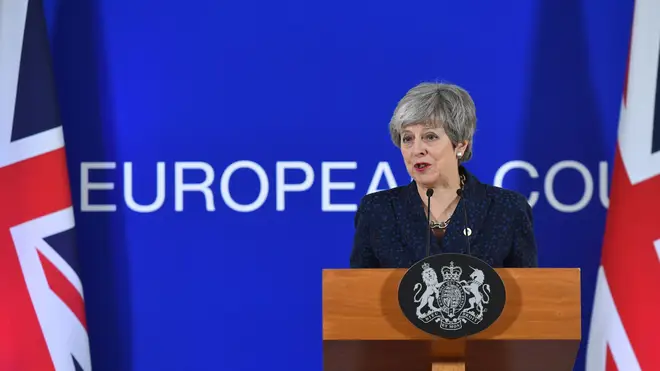
Nick Abbot 10pm - 1am
22 March 2019, 00:18 | Updated: 22 March 2019, 00:46

EU leaders have unanimously agreed to delay Brexit beyond March 29th. But what are the new dates for the UK's departure, and why are they so significant?
The European Union has agreed a conditional extension of Article 50 to May 22nd, provided the Prime Minister can get her deal passed through Parliament.
But if MPs do not back the Withdrawal Agreement, which has been defeated twice already in the House of Commons, then the extension will only last until April 12th.
EU leaders agreed to give Theresa May two dates to delay Brexit, the 12th April and 22nd May based on whether she can get her Withdrawal Agreement through Parliament or not.
In the case that MPs decide that they will back her Brexit deal, after it has been rejected twice before, then the extension will last until May 22nd.
However if when presented with the deal for the third time that MPs reject it, then the EU will only allow Article 50 to be extended until April 12th.
European Council President Donald Tusk said the UK has until the April 12th to decide whether or not it wishes to take part in the European Parliament elections that take place towards the end of May.
At this point, the UK will have the option of leaving with the deal, no-deal, or asking for a longer extension or revoking Article 50 altogether.
But if the UK decides that it will not contest the election, then the "option of a long extension will automatically be impossible," Mr Tusk said.
However should MPs decide to back the deal, then allowing until May 22nd allows time for the final preparations to be made and for legislation that supports the Withdrawal Agreement to be passed in both the UK and EU.